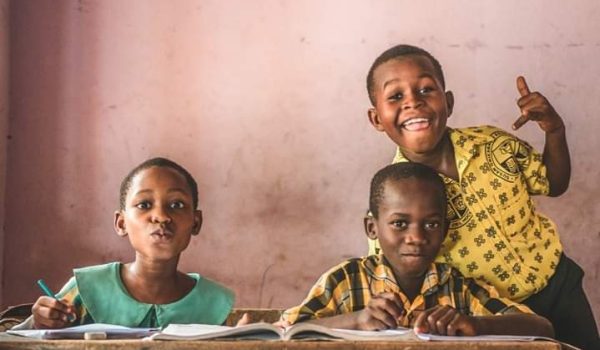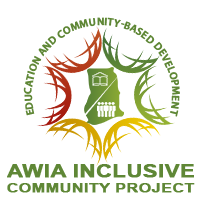Kumasi - Let's Grow Together
After-school/Community Youth Centre
Opening of an After-school/Community Youth Centre in the rural neighbourhood of Buokrom Estate, Kumasi, to give the possibility of permanent educational and recreational support to less privileged children and adolescents.
General purpose: to give less privileged children and adolescents a reference place where to meet and play, do educational and recreational activities together.
The guiding idea of this project is to activate an after-school program to counteract the failure in the study, the insufficient literacy level, and the educational disadvantage of minors.
The after-school service purpose is the motivation and re-motivation of “learning” minors, it is aimed at improving school performance, personal and school skills, working on the enhancement of one’s own self.
The main aim of the project is to enhance the singularity of each minor to identify suitable educational paths, in reference to specific situations, such as:
- Difficulty in reaching the level of schooling suitable for the placement class
- Strengthen the motivations of the family on the importance of schooling
- School recovery and support and development of gradual autonomy in reading and studying
The Intervention Strategy: Modalities and Actions
1. Research and Awareness
The project includes a preliminary study in the chosen area with competent local staff in collaboration with local schools and teachers. During the research, contacts with the community will be established through meetings whose purpose is to raise awareness about the importance of learning and schooling within the family and the community. The link with the community will be maintained with periodical meetings.
2. Network Activities
• On the formal network: meetings with schools and teachers of minors in order to share some operational tools and finalize interventions not so much for school support to all field, but to focus on top learnings, on which to experience successes that can spill over all other learning processes. Central objective: TO RE-MOTIVATE.
• On the informal network: AICP will seek on the one hand contacts with the families of assisted children in order to involve and empower them in the support process, on the other to involve children with their families in the numerous initiatives organized by Awia Inclusive Community Project, such as parties and events, also related to the ritual life of the community.
3. Child Sponsorship
AICP sets up child sponsorship programs for less privileged and disabled minors to provide for their school needs and the purchase of disability aids.
4. Educational-Recreational Activities
The activities at the base of the childrens’ path will be educational, such as after-school and literacy, and recreational, such as art and sport. Carried out by specialized teachers, the activities identified for the individual path will be carried out in groups to enhance collaboration and mutual support. The activities will offer opportunities for:
• improving the educational activities of children and adolescents
• creating communication and socialization opportunities
• improving relationships between teachers, family members and the community
• breaking the barriers due to stereotyped attitudes
• increasing awareness of the importance of learning at various levels, family, social, community
5. Activities with the Minors
- Re-motivation workshop to the study: aims to recover the minor’s experience, looking for connections in order to associate motivations. We also organize activities of “teaching centred on real problems”, for example how to behave in different daily situations. CENTRAL OBJECTIVE: to make use of learnings in a real non-competitive environment.
- Homework support activities: generally related to basic study skills, and in particular to individualized focuses (agreed with teachers) on which to experience success. In this context, the procedures of the first laboratory are possibly recovered. CENTRAL OBJECTIVE: to succeed on generalizable fields, to achieve success at school.
- Cultural activities and reading lab: reading books according to the PHONICS method in order to learn how to read and understand in English, watching videos and listening to music in the same logic. CENTRAL OBJECTIVE: reading, understanding, writing in English.
- Expressive workshops: in the Centre there will be a space where minors can do painting, manipulation and music workshops and, outdoors, sports workshops (football, basketball) and community games. Part of these activities are linked to the cultural and ritual life of the area, a chance to integrate. CENTRAL OBJECTIVE: to experiment and develop artistic interests, to participate in the community life.
- Engagement and social responsibility activities: the children are activated to self-manage their own space, to mutual aid and to the promotion of the activities of AICP in the area (charity desks, parties, etc.). CENTRAL OBJECTIVE: to get out of existentialist logic and help others, to have a superior goal, a horizon.
- Recreational activities: snacks, games, parties, recreational and cultural outings. CENTRAL OBJECTIVE: to have fun and feel good together.
In the awareness that the role of the family is a central one to the education and training of minors, the operators of the project promote the role of the family in its function of education and training of children, favouring the establishment of authentic reciprocal relationships with the child, the family and the community it belongs to.
6. Available Spaces
For the after-school program, the following will be made available:
• a bounded area for sports (soccer, basketball) and outdoor activities
• a classroom for expressive laboratory and music (with all the related equipment)
• a homework room where pupils will be followed by a specialized teacher
• a multifunctional room for cultural activities and reading lab, which will be equipped with all the necessary teaching materials (stationery, schoolbooks, dictionaries and vocabularies, atlas, tape recorder, whiteboards, multimedia equipment, etc.)
• 4 toilets and showers
• a small pantry
• first aid deposit
Final Recipients
The main recipients of the project are minors attending compulsory schools (from 6 to 14/15 years old).
Minors who participate in the after-school program will be:
- reported by schools and teachers
- reported by social workers or members of the community to which they belong
Of course, the research and awareness work will concern the community as a whole, the local schools and authorities.

Working Hours
When fully operational the Centre will be open:
- every weekday for cognitive and re-motivation activities
- 3 days a week for reading lab
- Saturdays for recreation and expressive workshops
The after-school schedule will be organized as follows:
3:45 – 4:00 pm: reception
4:00 – 5:00 pm: homework
5:00 – 5:15 pm: break time
5:15 – 5:45 pm: study, play or relax
5:45 – 6:00 pm: leaving
